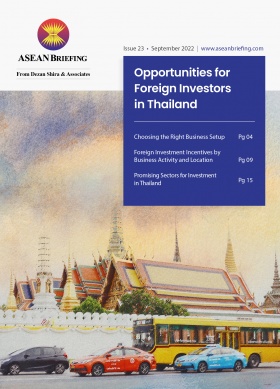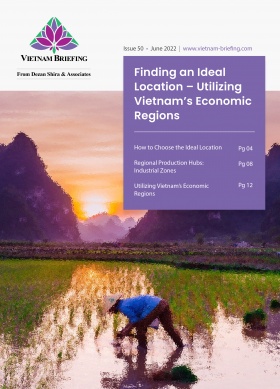Can Vietnam’s VinFast be the Real Contender to Tesla’s EV Throne?
Vietnam’s VinFast is among new entrants in the EV market, but with its lower-cost and tech-heavy offerings, could pose a real threat to existing manufacturers. In September, the company delivered the first batch of its electric SUVs.
VinFast is a private automotive company headquartered in Singapore, focusing on the development of electric vehicles (EVs). Established in 2017, it is a part of the Vietnamese conglomerate Vingroup.
Vingroup – established by Vietnam’s first billionaire, Phạm Nhật Vượng – is the largest conglomerate in Vietnam with business spanning the technology, real estate development, retail, and service sectors ranging from healthcare to hospitality.
The Singapore-headquartered firm is the first Vietnamese car brand to expand into global markets, producing electric cars and electric scooters. In September, VinFast began handing its first batch of 100 full-electric SUVs to local customers, with US deliveries of the vehicle due to begin as soon as December.
However, VinFast has surprised many critics and commentators with the competitiveness of its products. VinFast launched its first, non-electric, models in 2018 at the Paris Motor Show and was awarded ‘A Star is Born’ by AUTOBEST. In 2021, VinFast announced two all-electric premium SUVs – VF8 and VF9 – for the global market.This raises the question, can VinFast ever challenge Tesla’s dominance in the fast-growing EV sector? Tesla was among the first EV companies to emerge and has established a certain dominance over the sector – even outselling electric offerings from traditional/well-established car brands. In the first six months of 2022, Tesla’s EVs were, by far, the best-sellers globally.
The EV industry
VinFast is by no means the only contender to Tesla’s crown. The EV industry is fast developing, and Tesla competes with established car manufacturers, such as Volkswagen, Porsche, and the Jaguar Land Rover group, as well as newcomers such as Rivian and NIO.
The expansion of supply reflects growing demand. In the UK, it’s projected that electric cars will outsell diesel and mild hybrid diesel for the first time by the end of 2022. Meanwhile, petrol is set to remain the most popular fuel choice for used car buyers for the next few years.The industry has also seen the rise of manufacturers in countries not traditionally known for their motoring heritage. Chinese car brands had very little global recognition before the electric vehicle revolution. Now, Chinese manufacturers, including BYD, NIO, Xiaopeng, SAIC, and Geely, are among the largest EV producers globally.
For now, the biggest markets for EVs are Europe, notably in countries like Norway and Iceland, where EVs outsell combustion engines, followed by China and the US. China is a fast-growing market for EVs, but like the US, EV sales have barely scratched the surface. In 2020, the share of EV sales as a percentage of new car sales was six percent in China and two percent in the US.
Can VinFast prosper amid intense competition?
The Vingroup might be new to the EV industry, but it has lofty goals. The goal is to manufacture around one million electric cars within the next five to six years. However, that’s quite some going considering the company only manufactured 35,000 cars in 2021. As part of its ambitious growth plans, VinFast aims to be profitable within the next three years, according to Chief Financial Officer David Mansfield.
During a media day in September, the company said it is moving rapidly to address production issues with a large new factory in Haiphong, north of Hanoi that covers 84 hectares. Additionally, another new factory is planned for phased development in North Carolina in the US with an initial US$2 billion investment. VinFast had purchased the former Holden facility in Lang Lang, Victoria, before pulling out of the deal at the height of the Covid-19 pandemic.
The company has surprised several automotive commentators with the attractiveness of its EV offerings. VinFast has two models, the VF8, a mid-size eSUV, and the VF9, a full-size eSUV. The VF8 has a range of 292 miles and starts at US$40,700 in the US with a monthly battery subscription. The VF9 has an estimated range of 369 miles, with a starting price of US$55,500, with a monthly battery subscription.
Both products have comparable ranges to their Tesla competitors but are being marketed at considerably lower prices. Tesla’s Model Y has a 318-mile range and a starting price of US$65,990. Meanwhile, the Model X has a 223-mile range and a US$120,990 starting price.
VinFast’s EVs are also packed with futuristic features, including voice-activated windows and temperature control, a sizeable screen, and other new-age devices. Using the inbuilt sim card and the face recognition device on the steering wheel, drivers can even order food from their cars.
Expanding to high-wealth western markets will be key to VinFast’s potential success. While there might be a considerable market inside of China, even Chinese manufacturers have been keen to expand their reach into Europe and North America.
Despite its nascency, VinFast is fast expanding. It may also be poised for greater success in Western markets than in Chinese firms. Political tensions between Beijing and the West have created an uncertain export environment for Chinese auto manufacturers amid the ever-present threat of a worsening US-China trade war.
Supply chain development
In December 2021, Vingroup said that it had started building a US$174 million battery cell plant in Ha Tinh province’s Vung Ang Economic Zone for its VinFast EV project. During the first phase, the company is looking to produce 100,000 battery packs per year before upping its capacity to one million. It is understood that the plant is unlikely to be fully operational until 2025.
One factor that may aid the supply chain development is Vietnam’s potential emergence as a nickel-mining hub. The state has a relative abundance of nickel and the surge in demand for batteries has led to the reopening of nickel mines that had been closed due to profitability issues.
Australian company Blackstone Minerals recently took over the Ta Khoa Nickel Project (TKNP) in the country’s northern Son La province. The mines contain high-grade nickel sulfide mineralization, which is in demand by the lithium-ion battery industry.
The real rival to Tesla?
While there is plenty of competition for Tesla and other EV-makers around the world, VinFast has impressed critics with its offerings in the space and its ambition. The Vietnamese firm appears to have all the tools to allow it to prosper, but only time will tell how successful this emerging EV-maker will be.
While VinFast has cheaper offerings than Tesla and other brands, such as Porsche and Mercedes – all of which are leading sector development – there are other companies, such as MG, providing cheaper EV products. However, it appears that VinFast, with its low-cost, tech-heavy EVs, may be well positioned to prosper.
About Us
ASEAN Briefing is produced by Dezan Shira & Associates. The firm assists foreign investors throughout Asia and maintains offices throughout ASEAN, including in Singapore, Hanoi, Ho Chi Minh City, and Da Nang in Vietnam, Munich, and Esen in Germany, Boston, and Salt Lake City in the United States, Milan, Conegliano, and Udine in Italy, in addition to Jakarta, and Batam in Indonesia. We also have partner firms in Malaysia, Bangladesh, the Philippines, and Thailand as well as our practices in China and India. Please contact us at asia@dezshira.com or visit our website at www.dezshira.com.








